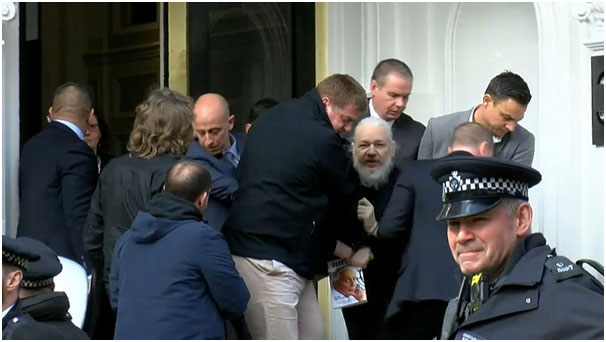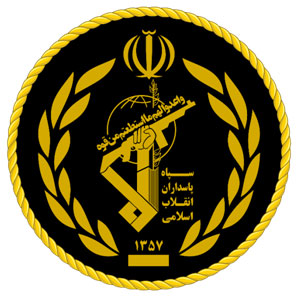
Image courtesy: Euronews
With the withdrawal of the political asylum provided to the WikiLeaks co-founder, Julian Assange, by Ecuador’s embassy, Assange was arrested by the British police in London on Thursday April 11, 2019, putting an end to his continued struggle for the past seven years to avoid extradition. Both Sweden and the United States had requested extradition of Assange on grounds of sexual assault and hacking into the Pentagon’s network respectively.
In the recent past, the Ecuadorian President Lenin Moreno had expressed his growing frustration regarding Assange’s repeated violations of terms of asylum and intervention in the internal affairs of Ecuador. Along with this, WikiLeaks had continued releasing confidential information of different states and individuals which compromised the foreign relations of state which played a major part in the revocation of his asylum. Post his arrest, Assange was produced in the court where he was found guilty for jumping bail in Britain. If extradited to the United States the WikiLeaks Co-founder could face up to five years of imprisonment. The cases of sexual assault which were shut down due to inaccessibility to Assange have also been demanded to be re-opened by the victims in Sweden.
The arrest of Julian Assange has been a sensitive issue in the United States as it could easily be interpreted as a step to prohibit investigative journalism and be seen as curtailment of the right to freedom of speech. There has been worldwide public outrage opposing the arrest and is seen as a violation of the international law. However, the other faction of people has supported Moreno’s decision. The future of Assnage with regard to extradition to the United States is still under consideration and Julian Assange’s lawyer has geared up for a long haul to prevent his extradition.


Image courtesy: Wikimedia Commons
The United States has designated Iran's elite Islamic Revolutionary Guard Corps (IRGC) as a foreign terrorist organization (FTO), which makes it illegal for any organization to provide material support to the IRGC. Ayatollah Khomeini formed the IRGC as a branch of Iran's Armed Forces founded after the 1979 Iranian revolution. Amidst escalating tensions between the US and Iran, Trump accused the group of not only facilitating but perpetrating terrorism.
President Trump declared the designation an "unprecedented step" that "recognizes the reality that Iran is not only a State Sponsor of Terrorism, but that the IRGC actively participates in, finances, and promotes terrorism as a tool of statecraft." This is the first time the US has accused a part of another government as being a terrorist organization, allowing for the US to put pressure on the international community against Iran.
The US has intensified its campaign against the Iranian regime since pulling out of the Joint Comprehensive Plan of Action commonly known as the Iran nuclear deal, imposing harsher sanctions than ever before on Iran. This has caused the Iranian government to increase its hostility against the United States with Iran's President Hassan Rouhani alluding that it would continue to build up its military power despite strict U.S. sanctions.